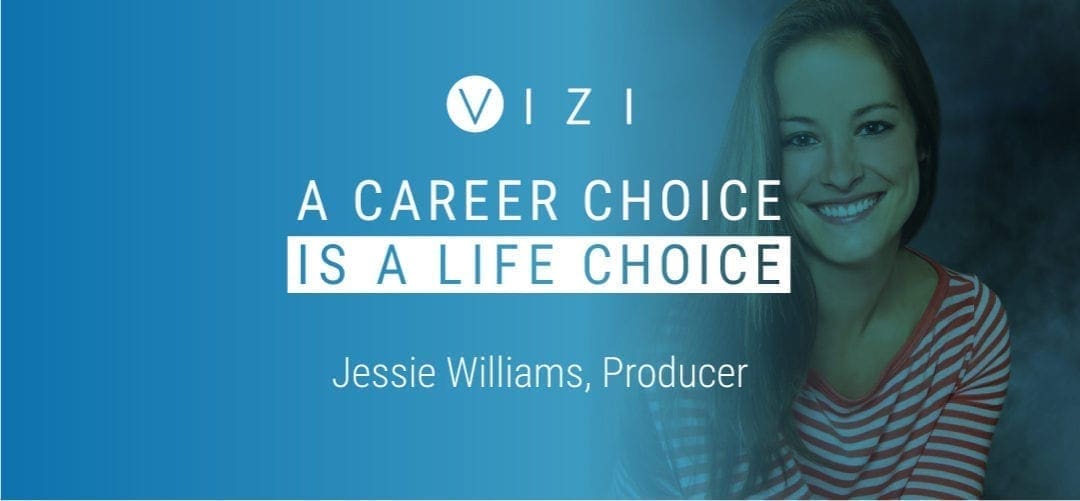
In the latest installment of VIZI’s A Career Choice is a Life Choice series, we’re speaking with Jessie Williams, an executive producer at Today’s TMJ4 in Milwaukee, Wisconsin. She has spent her career working in journalism with a few moves in between. Read about the insights she offers and what it takes to have a career in journalism.

Jessie Williams, Executive Producer at Today’s TMJ4
DB: Good morning Jessie! Thanks so much for sitting down with us today. To start, what is your current job position?
JW: I am an Executive Producer for Today’s TMJ4 – the NBC News affiliate in Milwaukee, Wisconsin.
DB: Can you tell me about your work journey to your current role as an Executive Producer?
JW: I majored in Broadcast Journalism and Cinematic Arts at Central Michigan University. I went to school with the intention of being a reporter, but my first job out of college was as a News Producer. I fell in love with it and haven’t looked back since. That first job was in Lansing, Michigan – market #110 out of more than 200. I made very little money and had to work as a bartender on the side for extra cash. But I needed to get a foot in the door and start earning my stripes. Once I did that for a year, I got a job as a Producer in Detroit. It was a big jump in markets – to #14 – but this move was much more meaningful for me. Detroit is my hometown TV market. As a journalist, I don’t think you can ever have a bigger passion than serving, and working with, the people in your hometown. This was truly a dream come true. But, after 4 years, my heart was being pulled to new opportunities and challenges. I was eager to make the move into management, so I accepted my current role in Milwaukee, as an Executive Producer for Today’s TMJ4. New opportunities and challenges are exactly what I’ve gotten, and I love it.
DB: We love hearing about the unexpected path most careers end up on! That being said, what do you value most about your job?
JW: I value so many things about my job. But I think the most significant, is being a good, solid journalist. It is an incredible responsibility to make sure I’m putting out information that is factual, ethical, dependable, relatable and so on. With that, comes a lot of pressure. The people in our community very literally rely on us for information that affects their daily lives – things like deciding how to vote, what needs or issues our community is facing at any given time, etc. This is not to be taken lightly. After all, we live in a world of fake news. That’s a whole other issue.
DB: What do you feel has been your biggest learning curve to date?
JW: Phew. Where to begin? There have many SO many learning curves during my time in TV news. I anticipate many, many more as the media industry – particularly local news – continues to change. But one example, and also one of the most recent, is navigating and adapting to a new political climate. Affiliations aside, the pressures of any media job has grown tenfold in the last few years. I mentioned fake news. That’s a big one. How can we counteract that notion? How can we prove that we are relevant and needed? Those are tough questions. The other biggie that continues to mount over time, is how to maintain current viewership, and also attract new ones. All we hear these days is that people are choosing to go elsewhere for news – podcasts, apps, social media, etc. I am constantly thinking about ways to adapt to that.
DB: What is your favorite question to ask candidates during an interview?
JW: The most important question I ask people during interviews is, “Are you willing to do whatever it takes to make a mark in this industry?” For all of the aforementioned reasons, this job isn’t to be taken lightly. We can only afford to bring people on who are willing and ready to do what it takes. Be it, earning less money in the early stages of their career, working the extra hours, asking the tough questions, getting out and meeting people in the communities we serve. I could go on for hours about how important this is.


